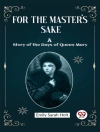In 'A Son of the Sun, ’ Jack London explores the themes of survival, nature, and the primal instincts of humanity through a series of interconnected stories. Set against the backdrop of the rugged Alaskan wilderness, London’s prose blends vivid imagery with a raw, evocative style, drawing readers into the visceral experience of his characters. The collection reflects the broader literary context of early 20th-century American literature, where the natural environment serves not merely as a setting but as a formidable character that shapes human destiny and identity. Jack London, an enduring figure in American literature, was deeply influenced by his own adventurous experiences in the Klondike Gold Rush and his keen observations of both human and animal behavior. His diverse life experiences as a sailor, laborer, and social activist informed the narratives in this collection, revealing both the harsh realities of life on the frontier and the profound philosophical questions concerning man’s relationship with nature. London’s passionate advocacy for social reform and his fascination with the elemental struggle for existence resonate throughout the stories. Readers seeking adventure intertwined with profound insights into the human condition will find 'A Son of the Sun’ a captivating read. London’s masterful storytelling not only entertains but also challenges readers to reflect on their own instinctual ties to the natural world, making this collection a timeless exploration of resilience and identity.
O autorze
Jack London, born John Griffith Chaney on January 12, 1876, in San Francisco, was a prolific American novelist and short story writer, whose works chronicled the unyielding elements of nature and the human spirit. As an emblem of American literature’s realism and naturalism schools, London’s narratives often star rugged individualists surviving in harsh environments. His own life was marred by poverty and fluctuating fortunes, providing fertile ground for the themes of struggle and adventure that dominate his writing.
London’s literary prowess first garnered major attention with the instant classic 'The Call of the Wild’ (1903), where the compelling story of a domesticated dog reverting to its primal instincts captivated readers. His autobiographical novel 'Martin Eden’ (1909) delivered a poignant exploration of an individual’s quest for self-education and artistic recognition. Another prominent work, 'A Son of the Sun’ (1912), exemplifies his adroit blend of colorful adventure and shrewd character studies. This collection of linked tales follows the Pacific adventures of David Grief, a captain and trader. London’s literary style, characterized by vibrant imagery and an unflinching look at humanity’s place in the universe, has endured, influencing generations of writers.
Despite his untimely death on November 22, 1916, London’s oeuvre remains a touchstone for American literature, showing an indelible influence on both the adventure genre and the exploration of socio-economic themes.












